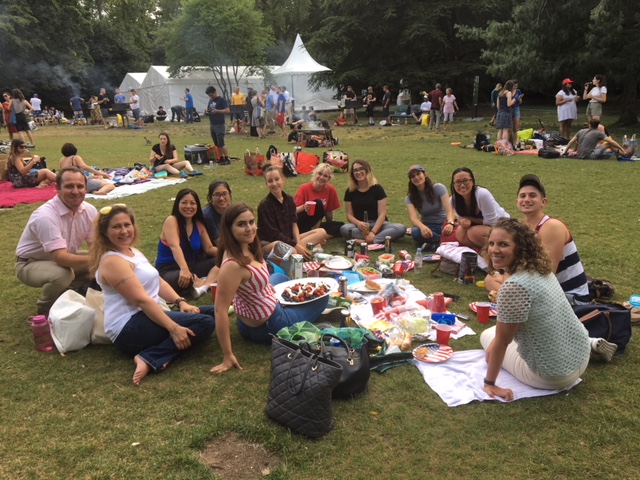Theories of Interpretation
In Constitutional Law, we learned that the Court’s answer to a legal question often depends on which theories of interpretation the Justices employ. We spent two class sessions discussing the strengths and weaknesses of each theory. Although I did see more merit in some theories than in others, the most valuable conclusion I drew from our dialogue is that no single theory is logically and pragmatically perfect. Consequently, different groups within the legal community sharply disagree with one another about what “the Constitution requires.” The best legal arguments predict and proactively address the questions that adherents to each theory of interpretation will pose. As a result, regardless of attorneys’ personal feelings about the various theories, it is important for attorneys to develop a robust understanding of each theory of interpretation.
Unsurprisingly, Justice Kennedy’s resignation sparked dialogue about recent U.S. Supreme Court decisions and about what the resignation means for the future of the U.S. and the rest of the world. As we analyzed the strengths and weaknesses of the Court’s argument in National Institute of Family and Life Advocates v. Xavier Becerra and the case’s potential policy repercussions, it quickly became clear that different interns applied and advocated for different theories of interpretation. Most of the interns and employees believed in using something like a living constitution theory, but one intern was staunchly originalist.
The advocate for originalism attempted to support his position with the assertion that originalism was the most logically consistent and predictable. The living constitutionalists countered that, because historical narratives are constructed and subject to scrutiny and modification over time, originalism was not as predictable as the originalist would like to believe. The plain meaning approach of originalism inevitably breaks down when equally competent historians and speakers of the native language disagree about the meaning of the Constitution and/or Amendment in question.
The complexity of the debate was a testament to the fact that no single theory of interpretation is beyond reproach, even though most law students and lawyers tend to favor one or two above the others.
My travels and interactions with diverse individuals and communities in the U.S. similarly have illustrated that no single worldview is perfect. One of my favorite aspects of working in such a cosmopolitan, international office is getting to participate in causal lunchtime discussions about many of the most important legal, social, political, economic, and philosophical issues of our time. I have learned so much by listening to both the ideals that my colleagues champion and the way in which they voice their opinions.
The office gathered to celebrate July 4th, and the celebration and events preceding it inspired meaningful conversations about nationalism and patriotism. One of the American interns hung a large American flag above his desk a couple of days before Independence Day and taped small toothpick flags to several British colleagues’ computers. I planned to wear red, white, and blue on Independence Day and supported the idea of having a barbecue but did not participate in the preparatory decoration or party-planning efforts. Different interns interpreted and responded to the American flag hanger's actions differently. Some thought they were a funny joke about the hyperbolic aspects of American culture and laughed, but others respectfully expressed irritation with what they considered overt display of nationalism in a multicultural office. Several individuals enthusiastically responded with their own displays of nationalism, such as hanging up their own country’s flags. Some respectfully critiqued the U.S. and the Trump administration. Others asked all of the American interns how any American who claims to disapprove of most Trump administration policies could, in light of recent political events, want to celebrate Independence Day.
Each American intern shared his or her own perspective on the meaning of Independence Day. I explained that my national pride was not at its peak, but I still supported the Constitutional ideals upon which the Framers founded the country and that I do not think criticism and patriotism are mutually exclusive. I care enough about my country to point out its flaws, discuss them, and work to correct them. Working abroad and preferring certain aspects of Swiss culture to certain aspects of U.S. culture does not mean that I lack all national pride or that I want to “abandon the sinking ship,” as one of my colleagues wryly posited. In many ways, working abroad means the exact opposite.
Based on my experience and undergraduate education, gathering, analyzing, and applying insights from abroad is essential to ameliorating the entrenched problems in our society. I enjoy studying comparative and international law and living abroad for many reasons, one of which being that I want to share foreign legal insights with lawmakers and justice sector actors in the U.S. to help improve our legal system. Yet, I do not care exclusively about the U.S. legal system and would love to assist other nations improve their own legal systems as well. The more I learn about the U.S. legal system and other legal systems around the world, the more I feel as though I will be able to use different worldviews and theories of interpretation to make a positive impact on worldwide access to justice.

